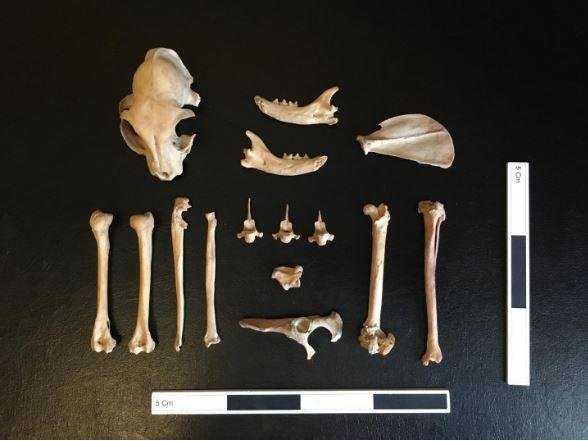A nearly complete cat skeleton found in Kazakhstan suggests that local tribes kept cats as pets over 1,000 years ago. Photo by Ashleigh Haruda/Martin Luther University
July 10 (UPI) -- The discovery of a cat skeleton along Kazakhstan's Silk Road suggests that cats were kept as pets over 1,000 years ago, according to a new study.
Researchers from Germany's Martin Luther University Halle-Wittenberg and the University of Tubingen, Kazakhstan's Korkyt-AtaKyzylorda State University and the Higher School of Economics in Russia reconstructed the cat's life for a study published this week in the journal Scientific Reports.
DNA analysis of the nearly complete cat skeleton indicates that the animal, a domesticated species not related to local feral cats, had a high-protein diet and was likely fed by members of the pastoral Oghuz tribe, researchers said.
An X-ray indicated it sustained numerous broken bones and lost most of its teeth, further suggesting that it lived a relatively long life under human care, they said.
"The Oghuz were people who only kept animals when they were essential to their lives," said researcher Dr. Ashleigh Haruda. "Dogs, for example, can watch over the herd. They had no obvious use for cats back then."
Until now, the concept of cats as pets was believed to have occurred later in Central Asia. The region was thought to have been slow in making changes regarding agriculture and animal husbandry.
The remains of the cat were discovered along the Silk Road, a network of caravan routes that connected Central and East Asia with the Mediterranean region, and in use from the 2nd century B.C. to the 18th century, in Kazakstan's Dhzankent settlement.
The find is indicative of cultural exchange between the regions located along the Silk Road, researchers said.















